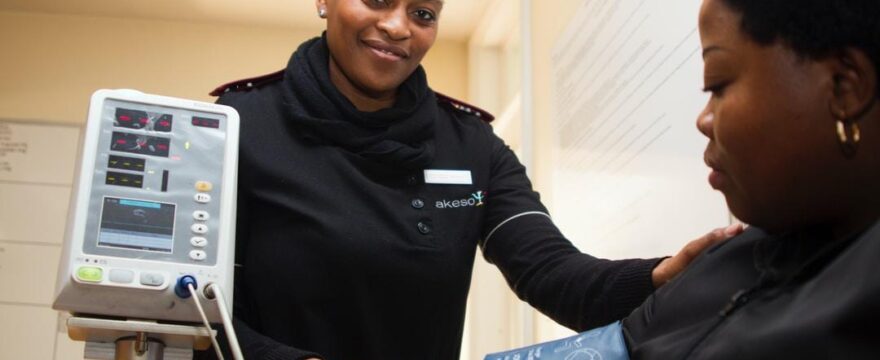Becoming a nurse can be the start of an incredibly rewarding career. Though working in health care can be a challenge, you’ll also have the opportunity to make a real difference in people’s lives on a daily basis. Nurses also typically earn above-average wages and receive comprehensive benefits from their employers. However, many students don’t know that there are different types of nursing degrees and that job duties will vary significantly depending on their educational background. If you’re considering becoming a nurse or pursuing your MSN, read on to learn more about who nurse practitioners work with.
Who do nurse practitioners work with?

Nurse practitioners (NPs) are highly trained and must receive an MSN in order to practice. Generally, they have the authority to perform advanced assessments, diagnose patients, come up with a treatment plan, order testing, and provide referrals, while other nursing degrees are focused on less advanced and technical aspects of patient care. There are many different types of NPs, so who you’ll be working with depends a lot on which specialization you choose.
One of the most popular choices is to become an FNP, or family nurse practitioner. FNPs provide primary care to families and work with patients of all ages. FNPs also often work with aging patients, like those going through the later dementia stages. Many FNPs work with their patients for decades through their elder years. This can be a great comfort to people with diseases like Alzheimer’s, who can benefit from having someone familiar with their personal and medical history to care for them. FNPs also play a central role in educating and informing patients and their families.
Those who enjoy working with younger patients should look into becoming a neonatal NP (NNP) or a pediatric NP (PNP). NNPs work with infants who are sick, premature, or who have sustained a birth injury to help them heal and recover. Pediatric nurses work with infants, children, and young people under the age of 21. Some other examples of NP specialties include adult-gerontology, psychiatric mental health, and women’s health.
How can you become a nurse practitioner?

Becoming a nurse practitioner requires several years of additional training, even after you’ve received your BSN. After you pass your National Council Licensure Examination (NCLEX) and become a registered nurse, you can start looking into graduate programs. Becoming an NP requires that you earn your MSN, or Master of Science in Nursing. If you aren’t able to attend an in-person program, you can even study to become a nurse practitioner online. After you graduate with your MSN, you will then have to take the National NP Certification Board Exam to receive your official NP licensure.
If you’re wondering about your job prospects after you graduate, you’ll be happy to know that NPs are paid well over the average salary in the United States and often receive generous benefits. Nurse practitioner job growth is projected by the Bureau of Labor Statistics to grow by 45 percent through 2029, and the median salary for NPs in the U.S. is over $110,000. If you’re looking for a job in the medical field with security and that can help you support yourself and your family, you may want to consider becoming an NP.
Going into the nursing field will take a lot of hard work and schooling, though the amount of training you’ll need depends on what type of nursing jobs you’re hoping to be qualified for in the future. You can work as an RN without a graduate degree, but becoming a nurse practitioner does require an MSN. You should also think about what your long-term goals are, as you’ll eventually have to choose a specialization. You can work with families, the elderly, children, or focus on specific issues like women’s health or mental health. No matter what your clinical interests are, there are a lot of reasons to consider a career as a nurse practitioner.
